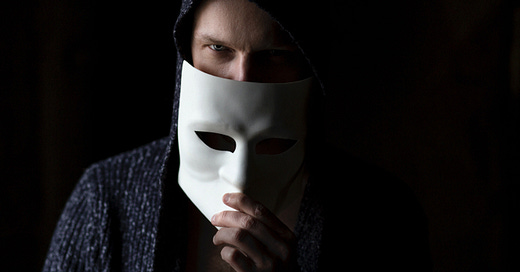Mark Driscoll stories seems to be flourishing. The level of his loyalty demands indicate deep troubles, both theologically and organizationally.
This is the second Postcard from Phoenix and it comes from former The Trinity Church worship staff member Luke Chase. Young Mr. Chase describes a difficult situation where he felt he had to choose between loyalty to his family and loyalty to The Trinity Church.
When a child is torn between loyalty to a pastor and loyalty to parents, the psychological dissonance is incredibly intense and disruptive. The pastor claims to speak for God, while your parents are, of course, your only parents. It is simply wrong for a pastor to usurp these relationships. If anything, church should attempt to build and rebuild family relationships. It should be noted that Luke’s brother Landon is married to Mark Driscoll’s daughter, Ashley.
The other disturbing feature of Luke’s postcard is his description of how he felt he had to demonstrate loyalty to the church over his friends. He said his associations and friendships were monitored with angry confrontations from leaders when he associated with non-approved people. This is quite troubling and something that I am hearing from others at The Trinity Church. I wouldn’t be surprised to hear this in another postcard or two.
The story of anti-Semitism in the USA needs more press:
America and Jews owe each other a great debt. An attack on one is an attack on both.The renowned British historian Paul Johnson has called anti-Semitism “a disease of the mind.” There seems to be no permanent cure for this disease. It has flared up again, not just in the usual international settings — in the United Nations General Assembly, for example — but much closer to home.During the first week of the Israel–Hamas conflict, the Anti-Defamation League (ADL) received 193 reports of anti-Semitic incidents in the United States. Two weeks ago, Jews were attacked by gangs in New York City and Los Angeles, and synagogues were vandalized in Skokie, Tucson, and Salt Lake City.Attacks on Jews, however, began long before the most recent clash between Israel and the Islamist terrorist organization of Hamas. In 2019, the ADL recorded more than 2,100 anti-Semitic acts, the highest number in the 40-year history of the organization’s report. The murderous rampages in synagogues in California and Pittsburgh, a shooting at a kosher grocery store in Jersey City, the arson at the Portland Chabad Center for Jewish Life, the stabbing at the rabbi’s home during Chanukah in Monsey, N.Y., and brutal assaults on Hasidic men in Brooklyn — such incidents are no longer a rare occurrence.
Tulsa Massacre, part of the American story and experience that must be told, lamented, and repented.
TULSA — The words on the wall are jarring.
They are filled with racist language and victim blaming.
Worst of all, they are taken from the mouths of professed men of God — from sermons preached on the Sunday after the Tulsa Race Massacre of 1921.
“I got emotional about some of the things that I did not know,” said state Sen. Kevin Matthews, founder and chairman of the 1921 Centennial Commission, which is commemorating the unlikely rise and devastating fall of Tulsa’s “Black Wall Street.”
Visitors such as Matthews, a Black Democrat who grew up in Tulsa but did not learn about the massacre until adulthood, experience the painful quotes through a special prayer room at the First Baptist Church.
The Southern Baptist congregation aims to tell the truth about past sins while asking God to bring racial unity at the 100-year anniversary of an atrocity that this Oklahoma city — and the nation — tried for decades to ignore.
“As a person of faith, as a follower of Jesus, I believe that talking to God can heal a lot of things, so we got our creative people behind this,” said the Rev. Deron Spoo, whose church, founded in 1897, occupies a sprawling downtown campus.
Up a short stairway by the congregation’s main worship area, the museum-like exhibit features historical notes, photos and newspaper clippings, along with suggested prayers.
Guests take seats on maroon-cushioned benches as they pause and bow their heads.
“I think we need to confront sin where we can, where we recognize it, and also pray against our own blind spots,” said Eric Fox, a First Baptist member who came with his wife, Jamey, and their 19-year-old daughter, Kennedy.









Maine link isn’t working, just FYI....